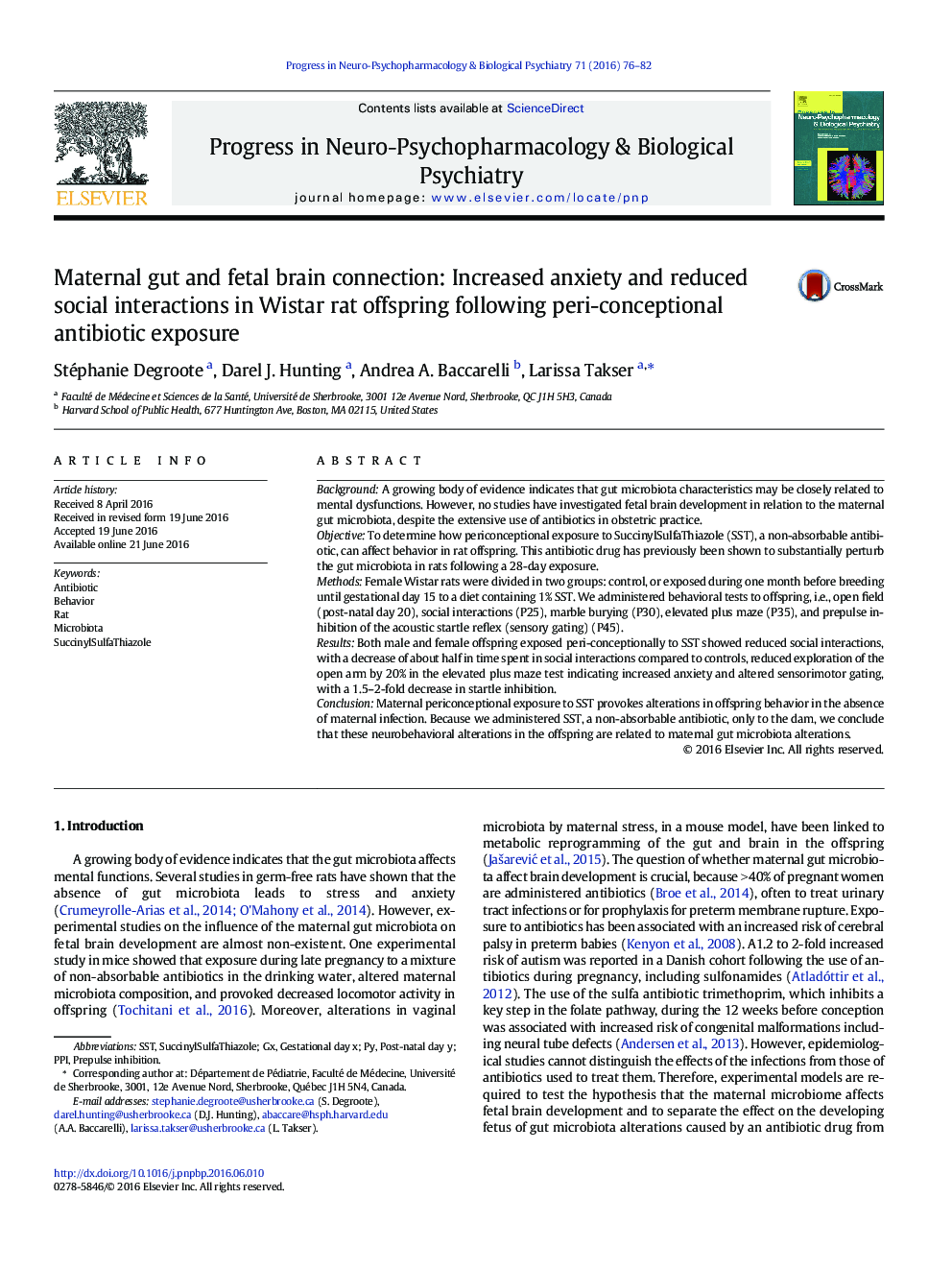| کد مقاله | کد نشریه | سال انتشار | مقاله انگلیسی | نسخه تمام متن |
|---|---|---|---|---|
| 2564633 | 1561023 | 2016 | 7 صفحه PDF | دانلود رایگان |
• Non-absorbable antibiotic during gestation induces behavioral alterations in offspring.
• Behavioral alterations are not due to decrease in tryptophan or folate levels.
• Alterations in maternal gut microbiota may induce adverse effects on fetal brain.
BackgroundA growing body of evidence indicates that gut microbiota characteristics may be closely related to mental dysfunctions. However, no studies have investigated fetal brain development in relation to the maternal gut microbiota, despite the extensive use of antibiotics in obstetric practice.ObjectiveTo determine how periconceptional exposure to SuccinylSulfaThiazole (SST), a non-absorbable antibiotic, can affect behavior in rat offspring. This antibiotic drug has previously been shown to substantially perturb the gut microbiota in rats following a 28-day exposure.MethodsFemale Wistar rats were divided in two groups: control, or exposed during one month before breeding until gestational day 15 to a diet containing 1% SST. We administered behavioral tests to offspring, i.e., open field (post-natal day 20), social interactions (P25), marble burying (P30), elevated plus maze (P35), and prepulse inhibition of the acoustic startle reflex (sensory gating) (P45).ResultsBoth male and female offspring exposed peri-conceptionally to SST showed reduced social interactions, with a decrease of about half in time spent in social interactions compared to controls, reduced exploration of the open arm by 20% in the elevated plus maze test indicating increased anxiety and altered sensorimotor gating, with a 1.5–2-fold decrease in startle inhibition.ConclusionMaternal periconceptional exposure to SST provokes alterations in offspring behavior in the absence of maternal infection. Because we administered SST, a non-absorbable antibiotic, only to the dam, we conclude that these neurobehavioral alterations in the offspring are related to maternal gut microbiota alterations.
Journal: Progress in Neuro-Psychopharmacology and Biological Psychiatry - Volume 71, 3 November 2016, Pages 76–82
